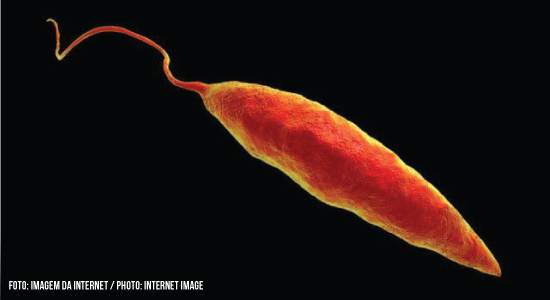
Leishmania can reproduce sexually, study finds
This type of reproduction has a direct effect on evolutionary and speciation processes
09/07/2019
Type of reproduction influences the transmission of characteristics of organisms and may influence virulence as well as the pathogenicity and ability of the species or strain to relate better or worse to a given host
In a paper published in May in PLOS Genetics entitled Whole genome sequencing of experimental hybrids supports meiosis-like sexual recombination in Leishmania reveals the ability of Leishmania to reproduce sexually. Researchers at the University of Washington School of Medicine in St. Louis and the National Institute of Health (NIH) have found that Leishmanias hybrid parasites can intersect with each other to produce fertile offspring carrying genes from both parents – signs of a true reproductive cycle. Researchers now hope to use their genetic remixing as a tool to find genes involved in the virulence of the disease. The type of reproduction influences the transmission of characteristics of organisms and may influence the virulence as well as the pathogenicity and also the ability of a species or strain to relate better or worse to a given host.
According to the co-author of the study and professor of molecular microbiology, Dr. Stephen Beverley, what is expected to know is why one strain causes a mild form of the disease and another causes a lethal form, or how the parasites avoid the immune response. By generating offspring with different characteristics, we can identify the genes that cause severe disease or immune resistance. This may be a step towards better treatment or prevention, said Dr. Beverley.
The specialist of the Laboratory of Research in Leishmaniasis at the Oswaldo Cruz Institute, which acts as a reference institute in the identification and genotyping of the Pan American Health Organization (PAHO), Dr. Elisa Cupolillo, explains that the work provides evidence that under some circumstances, parasites of the genus Leishmania can perform genetic exchange similar to sexual recombination, with predominance of a process corresponding to meiosis. This type of reproduction has direct effect on evolutionary and speciation processes. Recombination implies the transference of relevant epidemiological traits and allows the emergence and resurgence of characteristics that may be related, for example, to the disease produced by Leishmania spp and to the complete transmission cycle of this parasite. Still according to her, it is already known that the process of clonality is fundamental for the propagation of Leishmania; clonal variants are dispersed at a lower cost. Therefore, the fact that Leishmania has the ability to reproduce sexually and asexually brings a great advantage to these parasites.
Several studies have shown that genetic exchange exists in Leishmania promastigotes, in vitro and in sandflies. However, for the first time it has been shown that sexual recombination, involving meiosis, occurs in Leishmania, although without the apparent formation of gametes. In addition, the research opens new possibilities of study, because for the first time a genetic map of Leishmania is being presented, very important for the development of several studies with genetic analysis of these parasites and cloning of relevant genes, linked to characteristics such as virulence, resistance to drugs, among others.
Hybrid parasites rarely cross
Dr. Cupolillo points out that the study demonstrates that hybrids generated between distinct species cannot cross and that goes against the phylogeny of these species, which have diverged for a long time and so it is expected that there is a reproductive barrier. This reinforces that L. major and L. infantum are indeed distinct species. In the case of hybrids generated between strains of the same species, the crossing capacity is reduced. There are some possibilities that justify a reduction in the efficiency of crosses between strains of the same species, but the study does not present any assay and, consequently, any result that can explain this condition, he observes.
The study justifies using data from the literature for other organisms that also present this situation and are consistent with what is known about Leishmania spp genetics, such as, for example, chromosome rearrangement and aneuploidy. It is important to mention that after cross-breeding experiments the parasites need to be cultured in culture medium for further testing to be performed. We know that Leishmania adapts the conditions of in vitro culture through mechanisms such as amplification of genes and chromosomes, which probably generate modifications that modulate the performance of these parasites, she says.…










